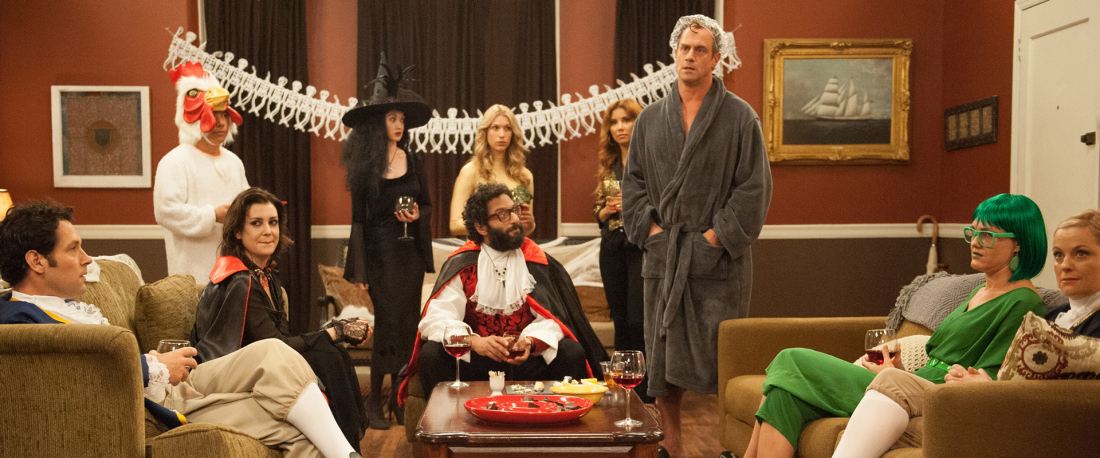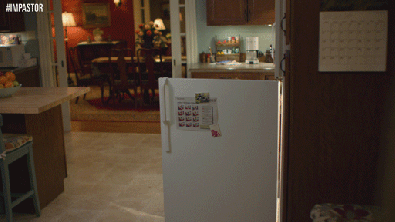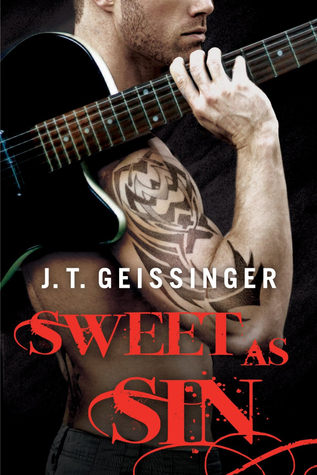
This piece was originally published on the 24th of April 2014 by The 405. I’ve made a few alterations to the version I’m uploading here because the original was frankly all over the fucking place. If I remember correctly, I had a night to write the majority of this piece, and that really shone through when reading it back today. This was also my first experience with any kind of press event, so I was pretty overwhelmed by commuting to London, watching five films in a row, going back home, having a few hours to write about those films to a kind-of professional standard, and then going back to London the next day for more (all for no form of remuneration, I might add). And, on a more fundamental level, I was nineteen and a worse writer back then (very much in a ‘Gee, isn’t Film Crit Hulk the greatest!’ phase). I could also shit on the editor, but I won’t. Just know that I could. So, yeah, think of this piece as it is presented here as a graphical remaster of a mediocre video game: I’ve made it look a bit prettier and smoother, but the controls are still kind of janky and the level design is uninspired. That is to say, this is basically the Futurama: The Video Game HD of film festival reports. Click the link if you want to read the original, but you’ve been warned.
You don’t need to have attended the Sundance Film Festival to be aware of its enormity. It began somewhat modestly in 1985, when Robert Redford’s Sundance Institute assumed control of the U.S. Film Festival, which had been held in Park City, Utah for a few years until that point. Eighty-six films screened that year across two screens. It has since mutated into the vanguard of American independent cinema, boasting an exorbitant programme of films that roughly averages around the two-hundred mark. Nearly fifty-thousand people now descend upon Park City for two weeks each January to experience not only the familiar faces on the festival circuit hawking their new wares, but the newest, most exciting voices voices in American and world cinema. Indeed, Sundance is one of the most prestigious outlets for emerging filmmakers, and, as such, is up there with the best festivals as a platform for discovering new talent. In short, Sundance is fucking huge in every sense of the word.
That’s all important to keep in mind because Sundance London, the offshoot festival now in its third year, is minuscule. Really, it’s tiny. For one, where Sundance takes up an entire city for a fortnight, Sundance London occupies the Cineworld in Greenwich’s 02 Arena for a weekend. Moreover, this year’s programme comprises a mere twenty features (including three ‘From the Collection’: Reservoir Dogs [1992], Memento [2000] and Winter’s Bone [2010]), seventeen shorts divided into two separate programmes, and the world premiere of Archive’s short film Axiom. So, when compared to Sundance proper, Sundance London sets up an interesting dichotomy. Owing to its vastness, it’s likely that one’s experience of Sundance USA will mostly consist of wading through mediocre films, but that only exacerbates the unbridled joy of discovering a great film. Sundance London inverts this: most of the fat has been trimmed off, supposedly offering a selection of the best bits of Sundance USA, but this comes at the expense of that sense of discovery. To be sure, ever feature film showing at Sundance London this year also played Sundance 2014 (with the exception of Fruitvale Station, which played the 2013 festival), meaning that if you’re interested enough in cinema to attend Sundance London, there’s a good chance that you’ve at least heard about some of, if not all, the films on show.
I certainly knew about all the films on the Sundance London schedule, mainly because of the buzz coming from Sundance USA. I also think it’s fair to say the same of my colleagues in the press screenings, as attendances noticeably fluctuated according to that buzz. And here’s the important question we need to ask in light of this: does such knowledge make Sundance London’s goal fundamentally different than Sundance’s? I’m not entirely sure it does: Sundance London stills exists to promote exciting independent voices, but this time to a UK audience (of cinema-goers and distributors) that may not usually get to hear them, seeing as most of the films are yet to secure UK distribution. With this in mind, however, the films selected for Sundance London have to be the best possible representation of what American independent cinema has to offer, given that the programme is so small. Now, up front, I don’t think that Sundance London 2014 does that. There are some great films, don’t get me wrong, but there are also some mystifying inclusions on the programme. Or rather, they’re mystifying when considering the films not included, such as the Grand Jury Prize winner at Sundance 2014, Whiplash, or Richard Linklater’s Boyhood, or the Nick Cave film 20, 000 Days on Earth, or the documentary about Roger Ebert, Life Itself. Or any of the other notable Sundance USA 2014 films, like The Babadook, The Guest, Cold in July, The Guest, Cold in July, God Help the Girl, and God’s Pocket. Maybe it’s down to schedules, or money, or secured distribution deals, but Sundance London is certainly not the microcosm of great American cinema that it could be this year. With so few films, there should be no duds at all. On the first day of press screenings (April 22nd) there were two. And while that doesn’t sound like much, that’s ten-percent of the festival’s feature films. All we can do, I suppose, is hope that this will change as the festival grows in stature.
[Ed. – Well, that sure fucking worked out, huh? The year after I wrote this, Sundance London was cancelled, and it has since moved to Picturehouse Central, with an even smaller programme of films.]
The first day got off to an incredible start, at least, with David Wain’s (Wet Hot American Summer [2001], Wanderlust [2012]) delightful rom-com parody, They Came Together. And really, if I do one thing with this gigantic fucker of text, I’ll hopefully persuade you to see this film, because it’s just about one of the best comedies I’ve seen in years. They Came Together is to romantic comedies what Police Squad! (1982) was to cop films, what Team America: World Police (2004) was to Hollywood action films, and, most appropriately, what Wet Hot American Summer was to summer camp films: a knowing, loving parody of tired clichés, a tremendously silly and riotously funny take on some of the laziest devices in Hollywood storytelling. Framed with one of the most exhausted tropes in the book, They Came Together begins with Joel (Paul Rudd, David Wain’s muse) and Molly (Amy Poehler, incredible) forcing friends to endure the story of how they came together – which is, funnily enough, more or less the story of You’ve Got Mail (1998). What follows is a roasting of the romantic comedy genre which, while boasting expectedly excellent central performances, mostly succeeds because of its tautness.
See, if Jason Friedberg and Aaron Seltzer (Epic Movie [2007], Meet the Spartans [2008]) have taught us anything, it’s that the whole self-aware genre parody thing can become cloying very easily, with the jokes becoming as tired as the clichés they’re lampooning. But, clocking in at a mere 83 minutes, They Came Together never once threatens to run out of steam. Every moment has some comedic purpose, is building towards a beautifully silly punch-line that’s more often than hilarious – whether it’s the traditional frolicking in the leaves which is undercut by a dead body beneath, or the repeated acknowledgement that Joel’s failure to follow through on his dream of setting up a coffee shop is actually a metaphor for his commitment issues, or the aesthetic and formal changes that occur as the film hits upon the clichéd plot points (including one of the funniest zoom shots in recent memory). No second is wasted, which is absolutely key in comedy. It moves at such a blistering pace with so many gags per minute that I couldn’t help but love it effusively. I laughed more watching this film than I have in quite some time in a cinema, so it worked on me. Although, I do concede that its constant self-awareness and very silly sense of humour won’t work for everybody. But then again, if you don’t like the prospect of Amy Poehler, surely one of the best physical comedians around, wearing a suit of armour, maybe you’re the problem.
[Ed. – 2017 Michael here again, just here to say that I still adore this film. It’s one of my favourite comedies and, when it was on Netflix, I always made people watch it. They all loved it, too.]
The overwhelming success of They Came Together, which seemed to go over well with everybody in attendance, certainly quelled the impact of the second film on the schedule: David Cross’ feature film debut, Hits. Let’s not beat around the bush here: Hits was a real let down, to the extent that it’s appropriate that the title is an anagram of ‘shit’. Designed as a mordant satire of celebrity culture and the delusional, vapid quest for fame, Hits feels incredibly misguided. The film is centred on Dave (Matt Walsh), a stereotypical working-class man from a small town who gains internet notoriety when liberal New York hipsters latch onto his rantings at city council meetings, much to the chagrin of his fame-obsessed daughter Katelyn (Meredith Hagner). And, really, it’s this focus on the working-class that endows the film with an unappealing misanthropic quality. “Look!” David Cross seems to be yelling, while he pisses himself laughing, “Look at the deluded poor people with nothing else in their lives apart from the empty pursuit of celebrity! Aren’t they funny?! Aren’t they horrible?! Let’s all point and laugh at their pathetic existence!” It’s a film that would would rather punch down at individuals for certain behaviours than criticise the wider culture that conditions and encourages such behaviours
Admittedly, the working-class are not the only figures of fun here, as just as much bile is pelted at the more wealthy hipsters. Regardless, though, if you hate your characters as much as Cross does, there needs to be a good reason for it. You’ve got to be saying something interesting and meaningful because, frankly, I don’t want to watch people wallowing in such abject misery for an extended period of time. I especially don’t want to laugh at them like Hits wants us to. And, more importantly, I didn’t laugh, and neither did the majority of the audience. It’s flat, its jokes are lazy, and it sometimes veers into the wrong kind of uncomfortable – especially a scene involving sexual exploitation. It’s about as subtle as a brick and adds very little to the conversation, spouting over and over again that everybody wants to be famous, which is, you know, kind of well-worn ground at this point. It’s a mess of worn out platitudes about fame and Millennials, topics that have been covered with more grace and intelligence in, to name just two examples, The King of Comedy (1982) and the excellent Fred Armisen and Carrie Brownstein TV show Portlandia (2011). And I say all of this as a fan of David Cross’ work.
Luckily, Hits was the low-point of the day for me – the worst was out the way pretty early on. The consensus of the screening room, however, appeared to favour the next film: Tim Sutton’s (Pavilion) Memphis. I can certainly see why: it’s an incredibly shapeless film, one that barely qualifies as a linear narrative, even though the press notes suggest that it has one, describing it as “An expressionistic folktale,” in which “a strange singer drifts through the mythic city of Memphis. […] Under a canopy of ancient oak trees and burning spirituality, his doomed journey breaks from conformity and reaches out for glory.” Those words don’t really describe the film I saw, which essentially boiled down to musician Willis Earl Beal (possibly playing a fictional version of himself?) fucking around and doing whatever for 79 minutes while Tim Sutton does his best Terrence Malick impression. It’s all very loose and unfocused; as hard as I tried, I couldn’t make any cogent associations between most of the shots and vignettes, and was left baffled as a result. I sensed that it was, in the most oblique way possible, about creativity, but Sutton’s languid sense of the poetic really confused that. That being said, however, it was at least capable of some moments of real beauty (particularly when Sutton films Beal playing music), and Beal himself is captivating, both as a musician and as the subject of this film. So, while it wasn’t quite my tempo, it was nowhere near as hateful as Hits. Also, Willis Earl Beal talks about the time he fucked the ground, so, y’know, that’s fun.
Next up was The One I Love, the feature film debut of Charlie McDowell (son of Malcom). This is a tricky film to write about because, while I want to advocate for quality cinema and gush about every aspect of this film, I also believe that the narrative conceit that makes it so special should be protected at all costs. The basic plot follows a couple (Elizabeth Moss and Mark Duplass, both impressive) spending a weekend at a vacation house in an attempt to revive their ailing marriage. The rest, which I won’t spoil here, is summed up by one of the characters as “some weird Twilight Zone shit,” and that’s about right. That is to say, McDowell uses a fascinating high-concept, bordering on science-fiction premise to successfully explore grand notions of relationships, expectations, and communication, and in so doing recalls the heady work of Charlie Kauffman, Michel Gondry and Spike Jonze. So, while this film is modest in practical terms – employing only three actors (the other being Ted Danson) and two locations – its emotional scope is impressively vast. Sometimes this means that its reach exceeds its grasp, especially towards the end, but the amount of ambition displayed for a debut feature makes up for that in my mind. It’s confident, imaginative, funny, and really deeply felt, and while you may mistake the vagueness of this summary as a cop-out on my part, I truly believe that this film is a surprise worth concealing. All you need to know is that you should see it when you get the chance.
The final film of the day was Sydney Freeland’s adequate first feature Drunktown’s Finest. Haphazardly flitting between three Native-American denizens of Gallup, New Mexico – a deadbeat father-to-be trying to get his act together (Jeremiah Bitsui), a trans woman (Carmen Moore), and a college-bound woman trying to discover her roots (Morningstar Angeline Wilson) – Drunktown’s Finest is clearly concerned with conflicts of identity. The three characters act as different strands of a contrast between Native-American and Anglo-Americana values, and, as a viewer that admittedly knows very little about Native American culture, I found that conflict to be the most compelling aspect of the film. And indeed, while some stories are better served than others (the trans character, Felixxia, is unfortunately the most underdeveloped strand), and despite the film being expressed almost entirely in terms of the most overused coming-of-age conventions, (Overbearing parents! Falling in with the wrong crowd! Dreams falling apart!), the culture-clash at the heart of Drunktown’s Finest sustained my interest throughout. And, given that it was the fifth film I saw that day, that’s actually no small feat.
Advertisements Share this:




